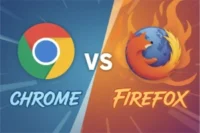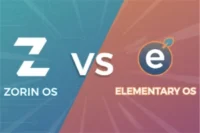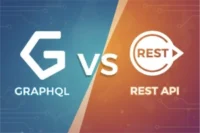Information Technology vs Computer Science: Key Differences
Published: 2 Apr 2025
Technology is a vast field, and two of the most common career paths are Information Technology (IT) and Computer Science (CS). While both deal with computers and technology, they focus on different aspects. Information Technology is about managing and maintaining computer systems, networks, and databases, while Computer Science focuses on programming, algorithms, and software development.

Understanding the key differences between Information Technology vs Computer Science will help you decide which field suits your interests and career goals.
Quick Comparison Table: IT vs CS
Here’s a quick comparison table of Computer Science vs Information Technology:
| Feature | Information Technology (IT) | Computer Science (CS) |
| Focus Area | Managing technology & networks | Programming & software development |
| Key Skills | IT support, networking, security | Coding, AI, data structures |
| Job Roles | IT Manager, Network Admin | Software Engineer, Data Scientist |
| Work Environment | IT departments in companies | Software & tech industries |
| Salary (avg.) | $70,000 – $100,000 | $90,000 – $120,000 |
| Best For | Security, IT admin, tech support | Programming, AI, app development |
Differences between Information Technology and Computer Science
Let’s talk about differences between computer science and information technology in detail to understand key differences cleary:
1. Definition
IT and CS have different roles and responsibilities in the tech world.
Information Technology (IT):
- Focuses on using technology to solve business problems.
- Involves managing networks, security, and system administration.
- Ensures software and hardware run smoothly for organizations.
- Covers areas like cloud computing, cybersecurity, and IT support.
- Helps businesses integrate technology for efficiency.
Computer Science (CS):
- Deals with programming, data structures, and algorithms.
- Focuses on designing and developing new software and applications.
- Involves mathematical concepts like computation and logic.
- Covers areas such as artificial intelligence, machine learning, and software engineering.
- Helps create innovative solutions through coding and system development.
2. Core Subjects and Topics
Both fields cover different subjects in education and practical learning.
Information Technology (IT):
- Networking and cybersecurity.
- Database management and cloud computing.
- IT support and system administration.
- Enterprise resource planning (ERP).
- Business and IT strategy integration.
Computer Science (CS):
- Programming languages (Python, Java, C++).
- Data structures and algorithms.
- Artificial Intelligence and Machine Learning.
- Software engineering and development.
- Cryptography and computer vision.
3. Skills Required
Both IT and CS demand different skill sets to excel in the field.
Information Technology (IT):
- Strong problem-solving skills for troubleshooting.
- Knowledge of network security and administration.
- Ability to manage and maintain databases.
- Familiarity with cloud computing and IT infrastructure.
- Good communication skills for IT support roles.
Computer Science (CS):
- Strong coding and programming skills.
- Deep understanding of algorithms and data structures.
- Logical thinking and problem-solving abilities.
- Knowledge of software development and AI.
- Ability to work with complex mathematical concepts.
4. Career Opportunities
Both IT and CS open doors to various high-demand job roles.
Information Technology (IT) Careers:
- IT Support Specialist.
- Network Administrator.
- Database Administrator.
- Cybersecurity Analyst.
- Cloud Engineer.
Computer Science (CS) Careers:
- Software Developer.
- Data Scientist.
- AI Engineer.
- Computer Programmer.
- Ethical Hacker.
5. Work Environment
The workplace and responsibilities vary for IT and CS professionals.
Information Technology (IT):
- Works in corporate environments handling IT infrastructure.
- Provides tech support, networking, and system management.
- Deals with hardware and software troubleshooting.
- Ensures security, cloud computing, and system upgrades.
- Works in IT departments of various industries.
Computer Science (CS):
- Works in software companies, research, and development.
- Develops and tests new applications and systems.
- Works on AI, machine learning, and cybersecurity projects.
- Focuses on coding, programming, and system architecture.
- Can work remotely as a software developer or engineer.
6. Salary Comparison
Salaries differ based on experience, job role, and location.
Information Technology (IT):
- Entry-level: $50,000 – $70,000 per year.
- Mid-level: $70,000 – $100,000 per year.
- Senior-level: $100,000+ per year.
Computer Science (CS):
- Entry-level: $60,000 – $90,000 per year.
- Mid-level: $90,000 – $120,000 per year.
- Senior-level: $120,000+ per year.
Which One is Better?
Choosing between IT and CS depends on your interests and career goals.
Choose Information Technology (IT) if:
- You enjoy working with networks, databases, and IT support.
- You prefer managing and securing computer systems.
- You want a career in cybersecurity, cloud computing, or IT management.
Choose Computer Science (CS) if:
- You love programming and problem-solving.
- You are interested in AI, data science, and software development.
- You want to create applications, games, or intelligent systems.
Both fields have strong career opportunities, and your choice should align with your passion and skills.
Conclusion
Information Technology (IT) and Computer Science (CS) are essential fields in the digital world. IT focuses on managing systems, security, and networking, while CS is about programming, software development, and algorithms.
If you prefer working with hardware, system administration, and IT solutions, IT is a better choice. However, if you enjoy coding, developing new technologies, and solving complex problems, CS is the right path.
Both careers offer high salaries, job stability, and growth opportunities. The best choice depends on your interests, skills, and career goals.
FAQs about IT vs CS
Here are some of the most FAQs related to IT vs CS:
IT is generally easier because it focuses on system management, networking, and troubleshooting. CS is more complex as it involves programming, algorithms, and software development.
Yes, switching from IT to CS is possible by learning programming languages like Python or Java. Gaining knowledge of algorithms, data structures, and software development will also help.
Basic coding skills can be useful in IT, but it is not always required. IT focuses more on networking, system administration, and cybersecurity rather than software development.
CS professionals usually earn more due to their expertise in programming and AI. However, IT roles in cloud computing and cybersecurity can also offer competitive salaries.
Both fields are useful for cybersecurity, but IT focuses on security management, network protection, and threat response. CS deals with encryption, secure coding, and ethical hacking.
Yes, many professionals study both IT and CS to expand their career options. Combining IT skills with programming knowledge can open opportunities in cybersecurity, cloud computing, and AI.
Both IT and CS have strong job demand, but CS has higher growth in AI, software development, and data science. IT roles are crucial in maintaining networks, security, and cloud services.
Yes, CS is the best choice for AI careers as it covers machine learning, neural networks, and data science. It provides the skills needed to develop intelligent applications and AI solutions.
Yes, IT professionals work in software companies to manage networks, databases, and security. They ensure IT infrastructure runs smoothly while developers focus on software creation.
IT is best for managing cloud services, infrastructure, and security. However, CS is ideal for those who want to develop cloud-based applications and platforms.

- Be Respectful
- Stay Relevant
- Stay Positive
- True Feedback
- Encourage Discussion
- Avoid Spamming
- No Fake News
- Don't Copy-Paste
- No Personal Attacks

- Be Respectful
- Stay Relevant
- Stay Positive
- True Feedback
- Encourage Discussion
- Avoid Spamming
- No Fake News
- Don't Copy-Paste
- No Personal Attacks





